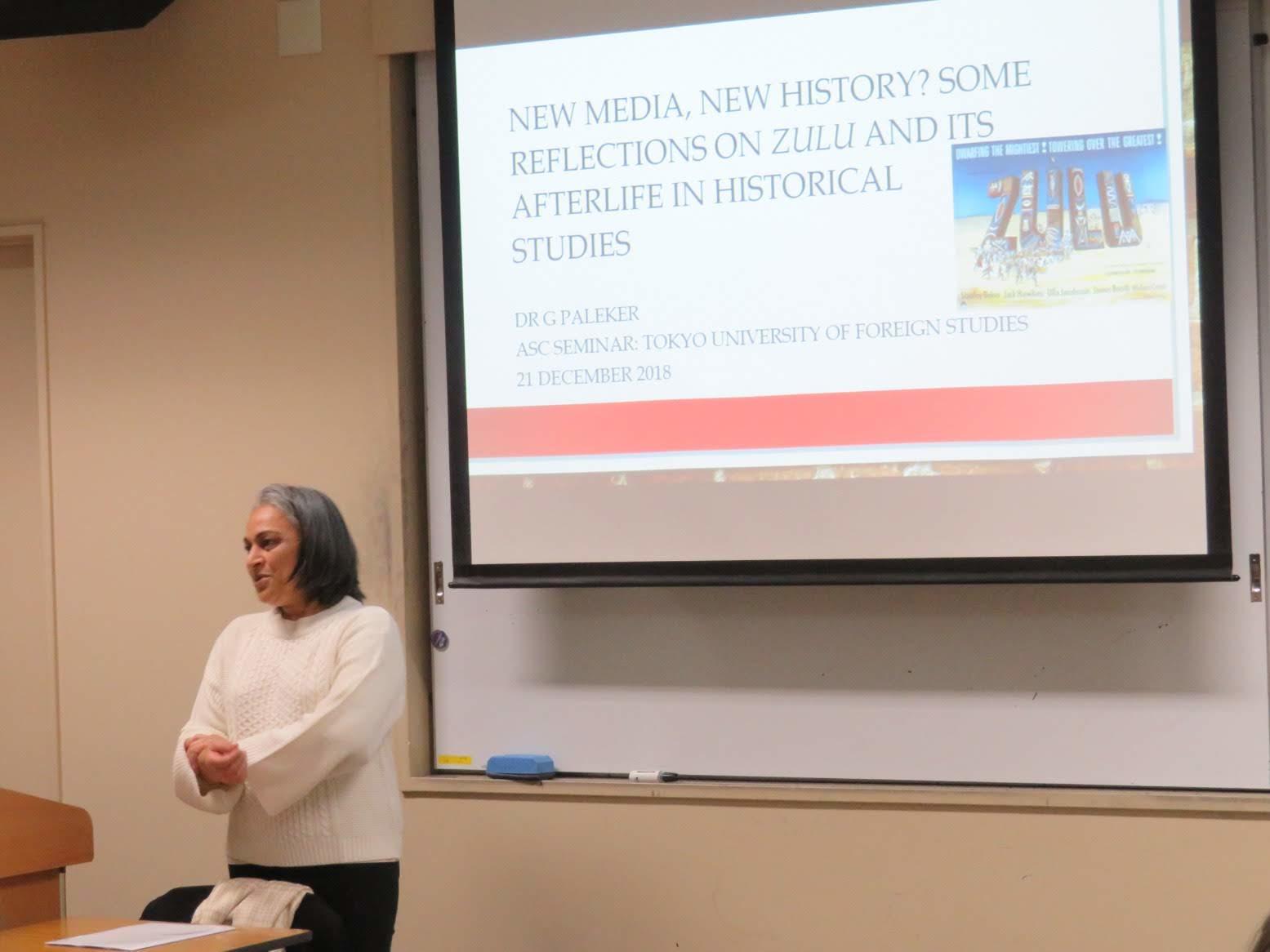Date & Time: Friday, December 21, 2018 5:40 pm - 7:10 pm
Venue: Room 322, Research and Lecture Building, Tokyo University of Foreign Studies
Speaker: Dr. Gairoonisa Paleker
(Visiting Professor, Tokyo University of Foreign Studies / Senior Lecturer, University of Pretoria)
Theme: New Media, New History?: Some reflections on Zulu and its afterlife in historical studies
Report:

Dr. Gairoonisa Paleker, a visiting Professor from University of Pretoria, delivered a lecture titled: "New Media, New History? Some Reflections on Zulu and Its Afterlife in Historical Studies." Dr. Paleker in her introduction specified that, film in historical studies is approached in two important ways, which are (1) Film as a historical source-which is readily accepted by historians and (2) Film as history-which is hardly accepted by historians. Dr. Paleker highlighted a few criticisms of film considered as history, and they are: film do not represent the complexity of the past; films individualize and romanticize the past; films are subjective and emotive and finally, films are unable to depict details and debate among historians.
Moreover, Dr. Paleker said, her research focuses on Zulu (1964) as both primary source and historical text. As a primary source, she indicated that from her perspective, Zulu is read for information about the context of production and context of reception, which means that, Zulu in history as providing information about the social and political concerns of the period of production and reception. Similarly, as a historical text, she read Zulu for the multiple historical meanings that have been created and re-created in its 54 years history, which also means that, Zulu as history, as visual text representing aspect of the past. Coalescing these two perspectives, Dr. Paleker posed a rhetorical question, what this film, and its very long afterlife on both conventional and new media platforms means for the discipline of history?
Dr. Paleker concisely recounted the historical battle that ensued between the Zulu Warriors and the British, and its historical importance in film production. She said approximately 400 Zulu warriors march on the mission station "Rorke Drift," and the plot of the film focuses on this encounter between the small British contingent and the numerically superior Zulu force, an encounter that eventually gave the British success in repelling the Zulu force and retaking Rorke Drift. She said the scene ended with the Zulu force singing a song in praise of British Valour, while at the same time, the British responded with the Welsh Marching song concurrently. Dr. Paleker said this film was first premiered in 1964 and screened at the Plaza Cinema in London. She also stated that a turn in the millennium poll conducted by the British institute in 1999, placed Zulu at 31 out of the 100 greatest British films of the twentieth century.
Concluding, Dr. Paleker emphasized that, the proliferation of mass digital media not only contributes to the long tail of this film, but in each viewing, each generation of viewers becomes a "prosumer" of history (Producer and consumer). She asserted that, the new history which is enabled by new media has numerous implications on five C's, which are: context, causality, contingency, complexity and Change over time.

